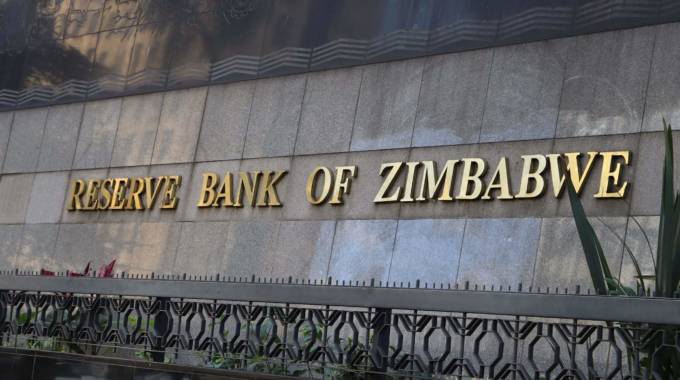
The Sunday Mail

Business Reporters
LOCAL firms with significant US dollar borrowings have been handed some timely relief after the Reserve Bank of Zimbabwe (RBZ) scrapped statutory surrender requirements on receipts from domestic sales.
The new provisions, however, only apply to grain millers — regardless of affiliation or status — and corporations with US dollar loans.
Many local companies started taking or converting loans into US dollar debt after the central bank hiked the benchmark policy rate from 80 to 200 percent to prevent borrowing for speculative purposes.
The bank policy rate, which set the minimum interest rates charged by commercial banks and made local currency loans expensive, has since been reduced to 140 percent.
Notably, though, Treasury recently threatened an even steeper interest rates hike following the resurgence of exchange rate volatility.
The authorities increased lending rates to record highs last year, accusing speculative borrowers of using cheaper money to attack the Zimbabwe dollar, which drove inflation.
In an environment characterised by local currency volatility, high inflation and limited access to forex, domestic US dollar sales provided some respite in terms of US dollar funding for key imports.
The scrapping of liquidations (surrender requirement), at the official exchange rate, comes as the central bank has scaled down allocations for key imports at the weekly foreign exchange auction.
While the bank has hitherto cited the need to promote the willing-buyer, willing-seller as the main platform for forex price discovery, volumes have remained low, forcing companies to use the parallel market to source US dollars.
RBZ exchange control director Mr Farai Masendu issued a directive to banks on Wednesday, exempting all grain millers and corporates holding US dollar loans from the 15 percent statutory surrender on domestic sales.
“To enable repayment of foreign currency loans, authorised dealers are advised that corporates with foreign currency loans with banks are exempted from the 15 percent statutory surrender requirement on domestic sales,” Mr Masendu said.
“For administrative purposes, authorised dealers are required to submit to Exchange Control schedules of their corporate borrowers that show the name of the borrower, date of loan contraction, amount borrowed, amount repaid to date, amount outstanding and a comment on the performance of the loan.
“This information should be furnished to Exchange Control by May 15, 2023.”
Captains of industry and commerce said the latest development, where qualifying entities are now exempted from the statutory surrender requirement on domestic sales receipts, would shore up forex they needed to service US dollar loans.
Confederation of Zimbabwe Industries (CZI) president Mr Kurai Matsheza welcomed the move by the central bank, saying businesses have always been against liquidation of 15 percent of the US dollar revenue at the heavily discounted official exchange rates.
“It’s a good development. We have always not been in support of the surrender requirement on domestic sales . . . it’s a step in the right direction; we welcome it.
“When you look at the dollarisation itself, you ask different people, they will always have arguments for and against. There are very strong arguments for and against dollarisation . . . the best that we should have is to make sure the multicurrency system is sustained for some time,” he said.
“Early full dollarisation will not be good for the economy and it will have certain disadvantages, and similarly, early mono-currency (Zimdollar) also has some disadvantages.
“Given the prevailing currency volatility under the multi-currency regime, this is where we have got to identify the issues that we need to address as an economy so that we avoid those issues that cause volatility in the currency.”
Last year, CZI warned that high interest rates were choking business activity.
Many firms, however, negotiated with banks to convert their obligations into US dollar loans to avoid the high cost of money in local currency.
Zimbabwe National Chamber of Commerce (ZNCC) chief executive officer Mr Christopher Mugaga said: “If corporates are now allowed to retain 100 percent forex, what it simply means is an acknowledgment or maybe it’s a reflection of the effects of the 75 percent dollarised economy. Remember, 75 percent of the local transactions are in US dollars.
“If businesses are given 100 percent retention, I think the only downside is that we are actually scaling up and expediting the route to re-dollarising.
“But the upside, obviously, is most corporates are now undercapitalised, with exchange rate volatility leaving companies with what we call exchange losses. So, by pushing for this, obviously, I think you are trying to capacitate or build a typical war chest for companies.”
Meanwhile, in line with Exchange Control Directive RP185 of October 29, 2014 and RR162 of September 23, 2016, the central bank said banks shall continue to approve, through a document management system, all loans below US$20 million.
Authorised dealers are required to submit to the bank for registration of all such loans with seven days of approval.
But the bank stressed that authorised dealers shall not credit the external loan into the client’s foreign currency account before registering the loans with the central bank.
“Such submissions to Exchange Control shall be supported by client mandate letters, board resolution, loan agreement, enhanced term sheet, existing borrowings, cashflow projections, latest audited financial statements or management accounts and any other documentation relevant to the borrowing,” Masendu said.
He said contraction, as per existing foreign exchange control policy, of external loans above US$20 million shall continue to require prior exchange control approvals.






